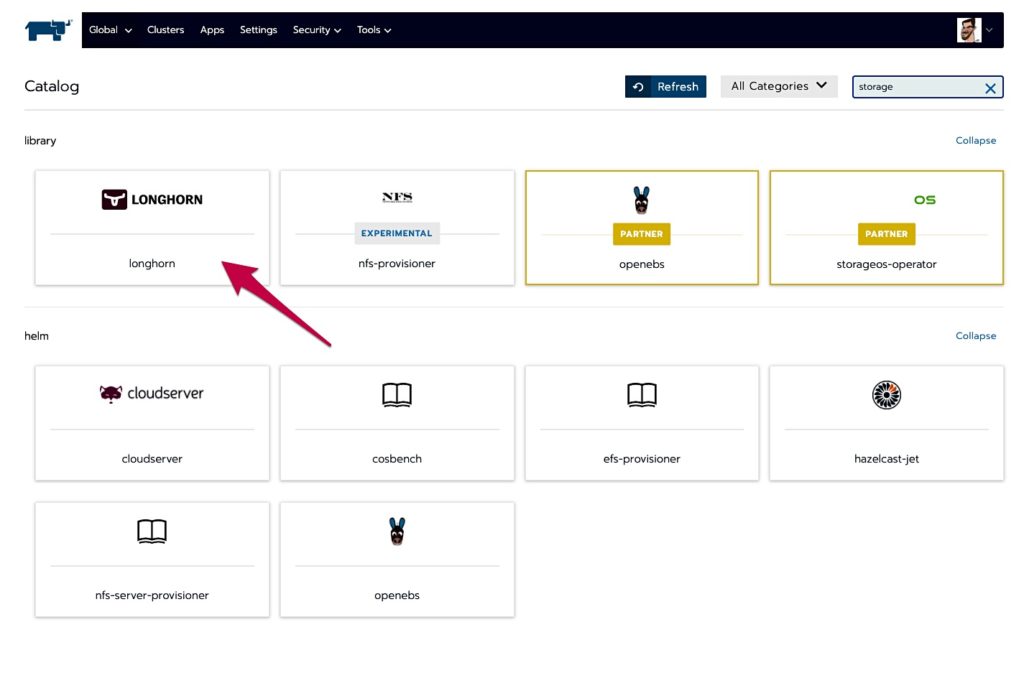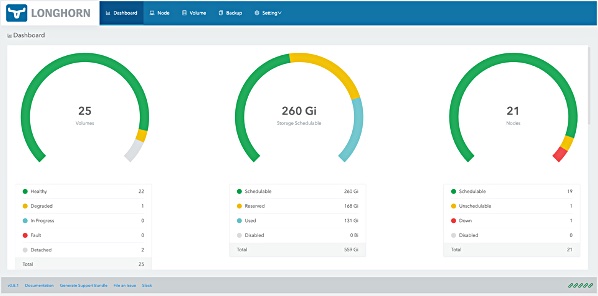Rancher Labs, the Kubernetes management software developer, has moved up the stack with Longhorn, an open source storage solution for containers.
Sheng Liang, CEO of the California startup, said today: “Longhorn fills the need for 100 per cent open source and easy-to-deploy enterprise-grade Kubernetes storage solution.”
With this launch, Rancher Labs is directly competing with suppliers of storage for Kubernetes-orchestrated containers – which are also Rancher partners.
For cloud native development, enterprises need a container orchestration facility. Wrapping in storage provision with your Kubernetes distribution could save the bother of dealing with a third-party storage supplier such as Portworx and StorageOS. Also, Longhorn includes backup, which means that Rancher is competing with Kasten.
Grabbing K8s by the Longhorn
Longhorn is cloud-native and provides vendor-neutral distributed block storage. Features include thin-provisioning, non-disruptive volume enlargement, snapshots, backup and restore and cross-cluster disaster recovery. Users also get Kubernetes CLI integration and a standalone user interface.

Storage volumes provisioned by Longhorn could live on the server’s local drives but Longhorn can also present existing NFS, iSCSI and Fibre Channel storage arrays. For instance, Dell EMC, NetApp and Pure Storage and Amazon’s Elastic Block Store could. be block storage sources. Longhorn will also work with Rancher Labs partners – and now competitors – Portworx, StorageOS and MayaData’s OpenEBS to provide their storage for apps orchestrated by Rancher software.
Longhorn’s backup is a multi-cluster facility and can send the backup data to external storage. Its disaster recovery has defined RTO and RPO numbers unnecessary. Longhorn can also be updated without affecting storage volumes.
Longhorn is free of charge. Rancher has an app catalogue and users can download Longhorn from its website and also purchase support. There there are no licensing fees and node-based subscription pricing keeps costs down.

Rancher Labs reminds us it is the cloud native industry’s favourite Kubernetes distribution, with some 30,000 active users and more than 100 million downloads. The company cites an IDC forecast that 70 per cent of enterprises will have deployed unified VMs, Kubernetes, and multi-cloud management processes by 2022.
Bootnote: Maya’s OpenEBS technology is using a version, a fork, of Longhorn to manage replication among the storage pods in its Virtual Storage Machines. A blog explains the details.








